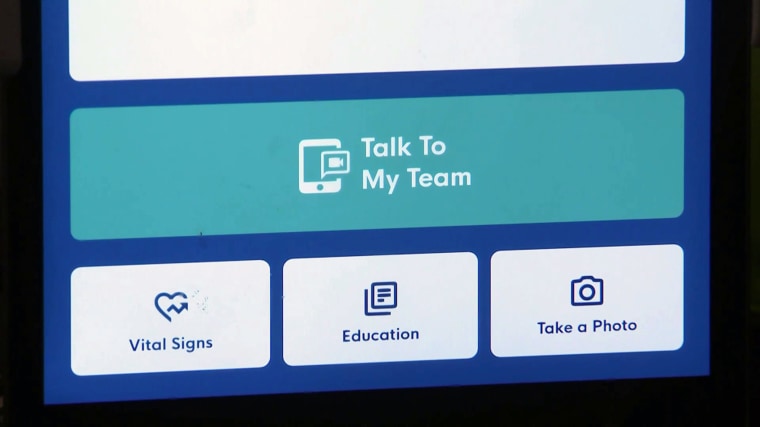The future of medicine could be just around the corner thanks to a new model from the Mayo Clinic.
The nonprofit has created a hub based in Jacksonville, Florida that allows doctors and nurses to provide traditional hospital-level care to patients remotely from a command center. This allows patients to receive care from the comfort of their own homes.
The Mayo Clinic announced the initiative in a news release last June, explaining, “Through advanced care at home, patients with conditions previously managed in a hospital will have the option to transition to a home setting and receive compassionate, high-quality virtual and in-person care and recovery services.”
Doctors have said that patients are able to recover faster through this type of care and hospitals could save up to 30% in costs, leading to lower health care prices for patients.
NBC’s Vicky Nguyen met and spoke with Shannon Scott, a patient being treated at home through this program. Scott, a 20-year Navy veteran, has severe rheumatoid arthritis, which has caused his lungs and liver to weaken.
Due to his condition, Scott was invited to participate in the Mayo Clinic’s Advanced Care at Home program. In order to get the care that he needed at home, his living room was outfitted with an internet connection, an IV, monitors, an iPad for video calls, and a landline that connects directly to his medical team.

His doctors and nurses are now able to monitor him 24/7, just miles away from his home, at a central command center. If needed, they can order IVs, call in prescriptions, dispatch emergency crews and even monitor weather conditions to look out for power outages or natural disasters that could affect a patient's care.
Dr. Michael Maniaci, Scott’s physician, told Weekend TODAY that he approves of the Advanced Care at Home program. “I'm practicing the best medicine I have in 18 years here with this new system,” he said.
When asked about what data existed to show the safety of this program, Maniaci said, “We're collecting quality data just like we do in a brick-and-mortar hospital on mortality, medication errors, falls, readmission rate. It's about equivalent to what we found in the hospital setting.”
Dr. Pippa Shulman, the chief medical officer of Medically Home who helped design the program, said she believes the cost of care can ultimately go down if more hospitals begin to offer this type of program.
“When you're not supporting the overhead of a hospital, you can take that cost out of the system,” she explained. “And we really want consumers to be paying less than they're paying now.”
The Advanced Care at Home program is best suited for patients who require acute care, including those who have cancer, severe pneumonia, congestive heart disease, or patients who are waiting to receive organ transplants. At this time, the program operates in Florida and Wisconsin and Medicare and Medicaid patients are fully covered for the program.

